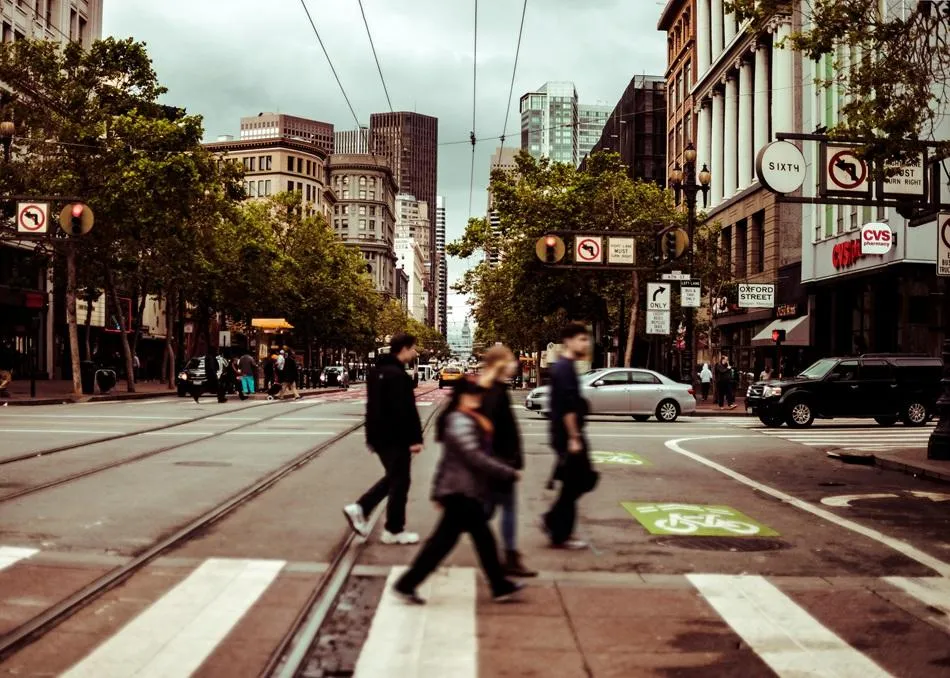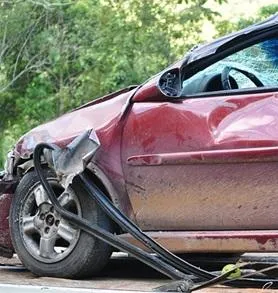
Steps to Follow After a Pedestrian Accident in
Worcester, MA
If you find yourself involved in a pedestrian accident, taking the right actions immediately afterward is crucial for both your health and any future legal claims:
1. Call the Police: Ensure that you report the accident to the police immediately. This ensures that there is an official record of the incident.
2. Document the Scene: If possible, take photographs of the accident scene. These photos should include any vehicles involved, your injuries, and overall scene conditions.
3. Gather Information: Obtain the contact and insurance information from the driver who struck you. Also, collect names and contact details of any witnesses, as their accounts may be vital if you pursue a legal claim.
4. Seek Medical Attention: Even if you feel fine, it's crucial to be evaluated by a medical professional. Injuries from accidents can sometimes be internal and not immediately apparent.
Following these steps can help protect your legal rights and provide essential documentation for pursuing compensation for any injuries and damages incurred.




How Worcester, MA Pedestrian Accident Lawyers at Michael J. Spillane & Co. Can Assist You
Suffering an injury as a pedestrian necessitates having a skilled attorney to effectively manage your case. At Bay State Injury Attorneys, our lawyers are proficient in collaborating with leading experts to advocate vigorously for the highest possible compensation for our clients. We handle every aspect of your case, from the initial investigation through to the trial and, if necessary, through any appeals. Our dedication to achieving the best outcomes is demonstrated by our long-standing track record of success.
It's important to remember that MA law imposes a three-year statute of limitations on filing pedestrian accident claims. Certain situations may require even swifter action due to shorter notice periods. To ensure your rights are fully protected, it's crucial to consult with an attorney as soon as possible after your accident.
Worcester, MA Pedestrian Accident FAQ
Who Covers Costs After a Pedestrian Accident in Worcester, MA?
Determining fault and financial responsibility is crucial after a pedestrian accident. If a driver is at fault, compensation typically comes from the driver's auto insurance under Massachusetts law. However, situations involving commercial drivers like truck or bus operators can be more complex, potentially implicating their employers in the liability.
Here's what you generally need to know about covering expenses after a pedestrian accident, although we can offer more tailored advice in a personal consultation:
1. Medical Bills: Personal Injury Protection (PIP) insurance from the vehicle involved usually covers the first $2,000 of your medical bills. Should your expenses exceed this amount and you have private health insurance, you'll need to submit the excess to your insurance provider. If you don’t have private insurance, or if your insurance denies the claim, you might access up to $8,000 in PIP medical benefits.
2. Lost Wages: If your injuries prevent you from working, you can receive compensation for lost income, equivalent to 75% of your average weekly wages, from the PIP carrier, up to a maximum of $8,000.
3. Serious Injuries and Wrongful Death: For medical costs over $2,000, or if you suffer serious injuries like fractures, you may be eligible for further compensation. This includes damages for pain and suffering, permanent or partial disability, scarring, and loss of life enjoyment. In fatal cases, wrongful death claims can also be pursued under state law.
4. Insufficient Insurance: If the party at fault is underinsured or uninsured, you might claim underinsured or uninsured motorist coverage from your policy or a family member’s policy.
Immediate action is often necessary to preserve all legal options. In the tragic event of a pedestrian fatality, the executor of the deceased’s estate, typically a family member, is entitled under Massachusetts law to file a wrongful death lawsuit against the negligent party. Consulting with an attorney experienced in both pedestrian accident and wrongful death cases is crucial to navigating these complex legal waters.
What Are Common Types of Pedestrian Accidents in Massachusetts
Pedestrian accidents are frequently caused by drivers who are speeding, distracted, or fail to yield the right of way. Alcohol impairment in drivers also significantly contributes to severe or fatal injuries to pedestrians. Additionally, hit and run incidents account for a significant portion of pedestrian fatalities, with AAA noting that 20.5% of all pedestrian deaths are the result of such accidents. Most of these accidents occur during the evening or at night.
Typical pedestrian accidents involve individuals crossing streets, but they can also occur in less expected places like parking lots, alongside roads, recreational areas, or even on sidewalks if a vehicle strays from the roadway. Furthermore, accidents often take place within crosswalks, where pedestrians are supposed to have the safest passage across streets.
Various vehicles can be involved in pedestrian accidents, including cars, trucks, buses, motorcycles, bicycles, and even vehicles like snowplows or emergency response vehicles. Areas near schools are particularly high-risk zones due to lower speed limits and the presence of school buses discharging students, necessitating heightened driver vigilance.
Construction sites also pose significant risks to pedestrians, with the potential for accidents involving heavy equipment or falling construction materials. Such environments require extra caution from both pedestrians and drivers to prevent accidents.
What Are The Crosswalk Laws in Massachusetts
In Massachusetts, pedestrians have the right of way under specific conditions as outlined in Massachusetts General Law c. 89, Sec. 11. This includes when they are crossing the street within a marked crosswalk, at an intersection with a "Walk" signal, or on a green light. The law stipulates that if traffic control signals are absent or not functioning, drivers must yield the right of way to pedestrians. This may require the driver to slow down or even stop to let a pedestrian cross safely.
More specifically, the law requires drivers to yield to pedestrians if they are on the same half of the road as the vehicle or approaching from the opposite side to within 10 feet of the vehicle’s path. Furthermore, it is illegal for drivers to pass vehicles that have stopped at crosswalks to allow pedestrians to cross.
Violations of this law are punishable by a fine of up to $200. Additionally, any incident involving a pedestrian being hit by a vehicle in a marked crosswalk must be thoroughly investigated by local or state police. The findings from such investigations may lead to civil or criminal charges against the driver.
While pedestrians generally have the right of way under these circumstances, they are also required to exercise reasonable caution and adhere to local ordinances and state regulations. For example, pedestrians must yield to vehicles when crossing state highways unless they are in a crosswalk. In urban areas, pedestrians might be required to cross at designated crosswalks or intersections.
If you've been involved in a pedestrian accident, consulting with a knowledgeable attorney can provide you with a clearer understanding of these laws and how they may apply to your case. Our Worcester-based legal team is available for a free consultation to discuss the specifics of your situation.
Your Advocate for Justice Awaits.
Get your personalized legal representation focused on winning your case. Tap into our decades of expertise today and start with a free, no-obligation case evaluation. Click the button below for details.





